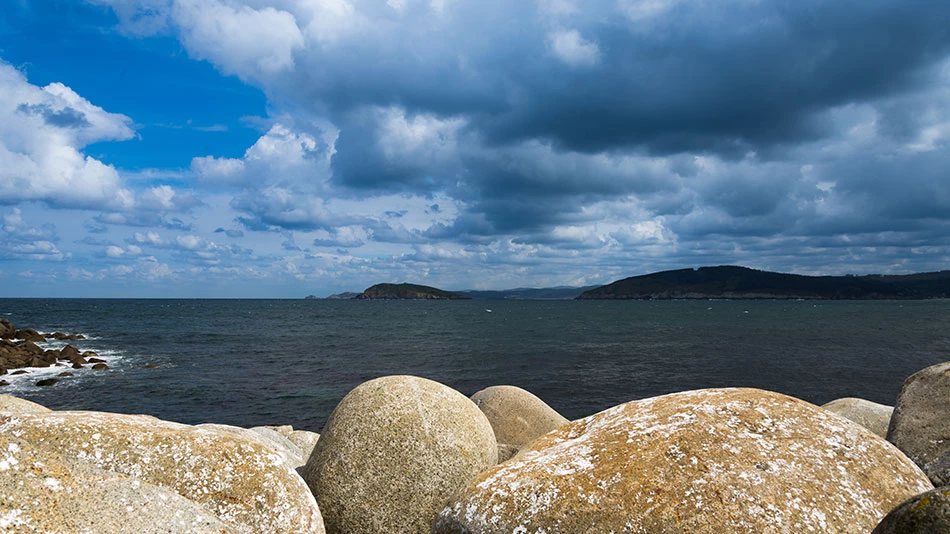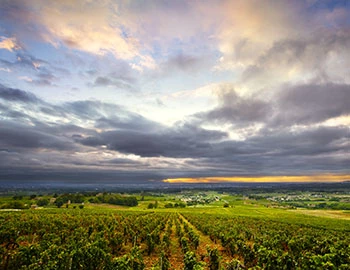Rías Baixas
Rias Baixas: with the crispness of the cool Atlantic
Whenever the Spanish wine country is mentioned, one usually thinks first of full, fruity red wines with a Mediterranean charm. In the Rias Baixas, however, on Spain’s north-western tip, distinctly crisp white wines result from the influence of the cool Atlantic. These are mainly vinified from the Albariño variety, but also from Treixadura, Loureira and Godello. The fruity crus harmonize splendidly with fish dishes and also with Asian cuisine.
White wines from Rías Baixas
Since the Albariño white wines in the Rias Baixas are produced near the pilgrimage city of Santiago de Compostela, it was long accepted that monks had brought the variety on their way to Santiago from Central Europe between the 11th and 13th centuries. And because the Albariño crus, from a sensory perspective, quite strongly resemble Riesling, descent from this noble German variety was thought possible. Even the variety's name alludes to this kinship: “Albariño” translates to “little white from the Rhine”. However, recent studies indicate that the origin of the variety would be better sought in the west of the Iberian Peninsula.
More fruit thanks to modern vinification
Until the 1980s, the Albariño was viewed as a rustic, distinctly acidic wine, which was almost exclusively consumed in its immediate homeland. But through yield reductions and modern vinification techniques, the more noble sides of the variety were coaxed out. And so, the new generation of Albariño crus impresses with aromas of flowers, meadow herbs, mint, apricots and apples, along with a juicy acidity which melts on the palate. This type of white wine quickly became popular throughout Spain, before gaining in exports by the 1990s.
Baffling aging potential
In addition to the standard wines that are trimmed for freshness and quick enjoyment, today specialties are also increasingly entering the market which must age a long time on the fine lees before bottling, sometimes in small or large oak wood casks. These selections have a surprising development potential and can mature for up to ten years.
Spain’s wettest region
The 3,700 hectares of vineyard in the Rias Baixas is divided into five sub-regions. The most important of these are the Valle de Salnés with its principle location, Cambados, as well as the Zone O Rosal, which extends from the mouth of the Miño River upstream. Wines that are particularly full of character result from very granitic locations, as well as alluvial terroirs with high sand content. It is important for the soils to be well drained or sufficiently water-permeable, because with rainfall of up to 2,000 millimetres per year per square metre, the Rias Baixas is not only the coolest, but also the wettest wine region in Spain.






